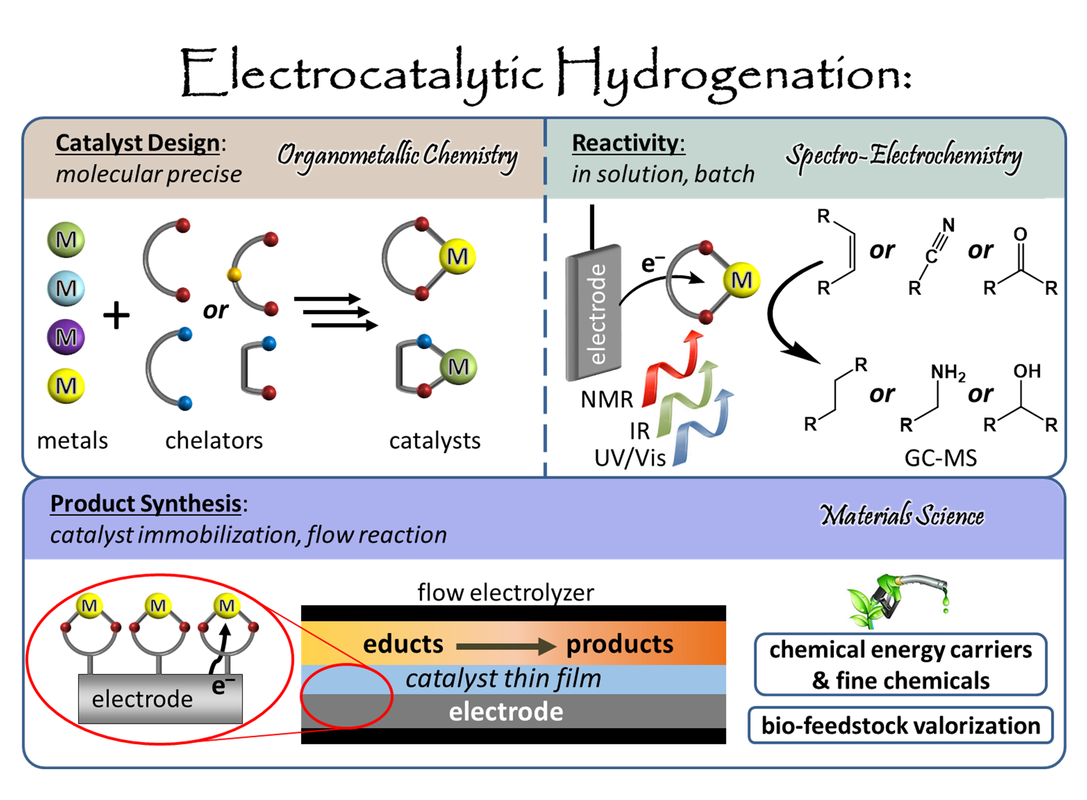Electrosynthesis of Energy Carriers & Value-Added Products
|
Our Motivation
|
Intermittent availability of renewable electricity is a tremendous obstacle for our society's transition towards zero carbon emission target against climate change. A hydrogen economy was proposed to address this challenge, in which sustainably produced H2 serves as a primary energy carrier and a feedstock for industry. Storing gaseous or liquefied H2 on economy scale is dangerous, energy inefficient (compression & cryogenic cooling), and a tremendous engineering challenge. Liquid organic hydrogen carriers (LOHCs) that store hydrogen in form of chemical C–H bonds are a scalable solution, but it still suffers from only moderate overall energy efficiency.
In the Halter group, we believe that the strength of electrocatalysis in the context of energy conversion and sustainable synthesis lies in the direct, atom economic formation of storable energy carriers and usable products. Instead of electrochemical H2 production for subsequent chemical conversion (i.e. hydrogenation), we develop H2-free direct electrocatalytic hydrogenation strategies to produce LOHCs, as well as fine- and base chemicals. Our Approach
Research in the Halter Group targets novel strategies for electro-organic synthesis of chemical energy carriers and value added products, enabled by new molecular and solid state electrocatalysts. Specifically, group 9 and first row transition metal complexes are developed to mediate the atom economic and energy efficient electrocatalytic hydrogenation of organic carbonyls, nitriles, unsaturated hydrocarbons and aromatics. Advanced electrochemical methods and in situ spectroscopy allow a detailed understanding of electrocatalytic cycles, to inform the design of new catalyst generations with higher energy efficiency and conversion rates. Well-performing catalysts will be immobilized to surfaces with conductive tethering ligands or within metal-organic framework thin films, to create functional electrodes as process friendly solid state hydrogenation electrocatalysts. These functional electrode materials are then employed in continuous flow electrolysis, to enable bulk synthesis of target compounds based on newly developed reactivity.
|
Poject Details
Coming soon!

